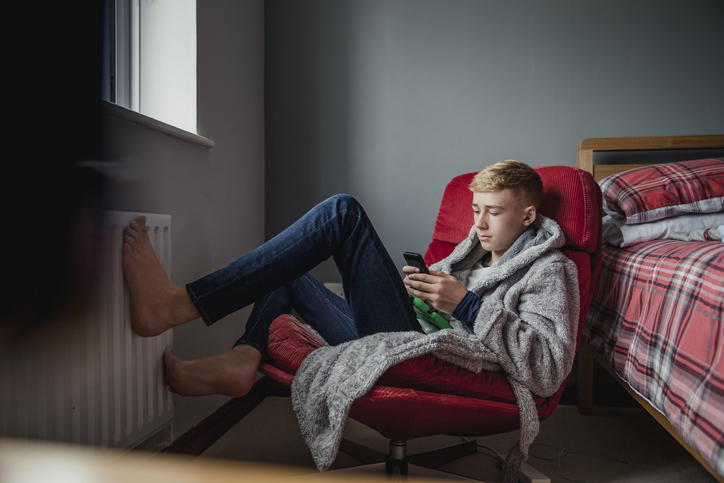Stalking and harassment
Stalking and harassment is when someone tries to make repeated contact with you in a way that makes you feel scared, upset or threatened.
This content has been written for children and young people. If you’re looking for information for over 18s, visit our Types of Crime information about stalking and harassment.
You may know the person who is stalking or harassing you, or they may be a stranger.
It can happen more than once, over time, which can make you feel even more afraid.

Stalking can happen to anyone. You may not notice the problem to begin with, as stalking or harassment can build up slowly over time.
A person may stalk or harass you by:
- following you
- watching or spying on you
- contacting you when you don’t want them to, which can include visiting you, phoning or messaging you, following you online or writing letters to you
- threatening you, whether face-to-face, through phone calls, messages or letters, or through social media and online
- being abusive to you because of your identity (culture, disability, race, religion, sexuality) – this is known as hate crime.
Stalking and harassment can make you feel worried, sad or angry, and it may feel like you’re trying to deal with this all on your own. But the fact that the person keeps following you or trying to contact you isn’t your fault, and no-one has the right to make you feel frightened or upset. Lots of people find that if they talk to someone it can help.
Some things you can do:
- Tell an adult you trust – this could be a teacher, a family member, your youth worker, social worker or support worker. It can be difficult to know how to have this conversation but we have some tips on asking for help.
- With a safe adult, you could develop a safety plan that would help you choose how best to keep yourself safe.
- Don’t make contact with the person stalking or harassing you, and try to avoid talking or communicating with them. If you are alone, try to get to a busy, public place.
- Think about your daily routine – can you change this to keep yourself safer?
- Check your home security.
- Write down what has happened soon after each event including times and dates. Keep any evidence you might have such as letters, emails and unwanted gifts.
- Stalking and harassment is a criminal offence, so think about reporting it to the police. If you’re at immediate risk of getting hurt, call 999.
- Talk to your friends. A good friend will listen to you and may help you speak to an adult.
If you’re worried about a friend, we have some tips on how you can start the conversation and get them the right help.
Am I overreacting?
No. If you feel scared, worried or angered by any behaviour, then you should not have to put up with it. Stalking and harassment are against the law, so if you decide to report this don’t be scared – you will be taken seriously.
Can stalking only be done by a stranger?
Many people think of stalkers as strangers in the shadows, or someone obsessed with a celebrity. But most people know their stalker and have been in a relationship with them or were friends with them. Even if you may know your stalker, this is still wrong and can be very scary. It’s important that you talk to someone who can help you to keep safe.
Victim Support’s Children and Young People Services – you can contact your nearest Victim Support office, call the 24/7 Supportline, contact us via live chat, or if you are 16 or older, you can create a My Support Space account. This is a free, safe and secure online space where you can work through interactive guides to help you move forward after crime.
Childline – offer 24-hour support for young people on a range of issues: 0800 1111.
National Stalking Helpline – you can call the helpline on weekdays on 0808 802 0300, or email advice@stalkinghelpline.org.
Crimestoppers – if you want to provide information about a crime without talking to the police, you can contact Crimestoppers anonymously on 0800 555 111.
The Mix – provides information and support for under 25s on a whole range of issues, including rape and sexual assault as well as safe sexual relationships. Get confidential help by email, text, webchat or phone: 0808 808 4994.
